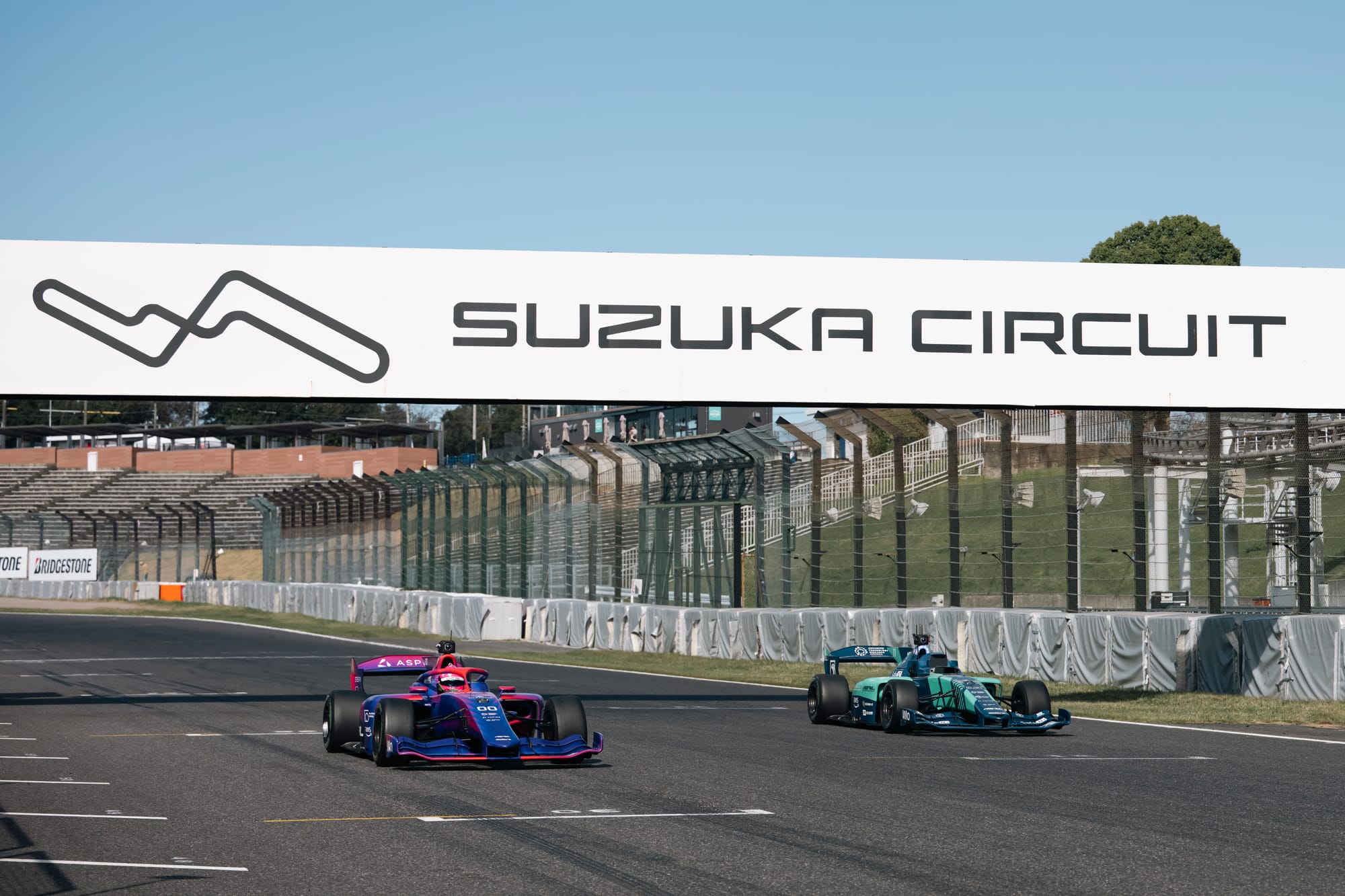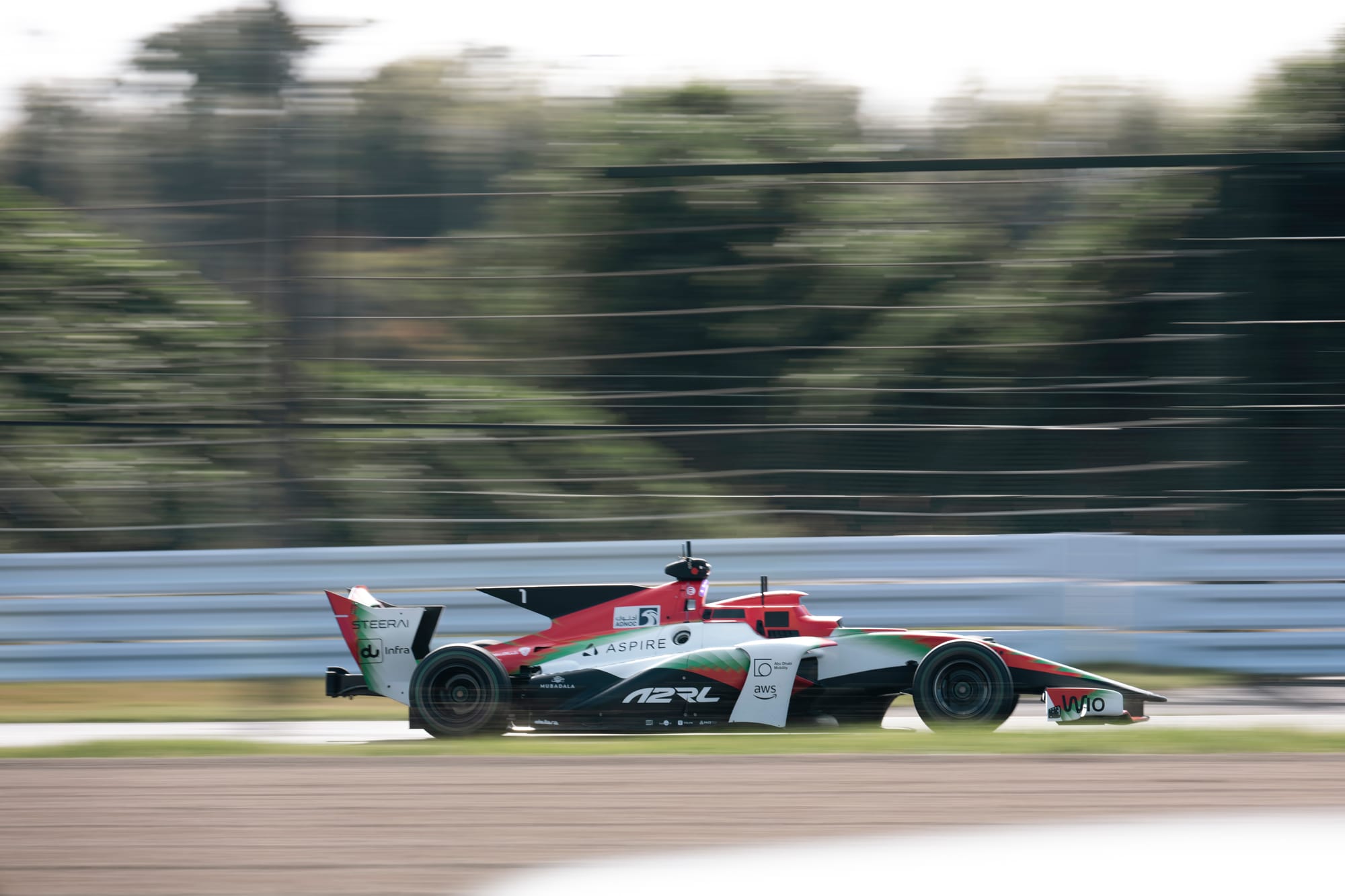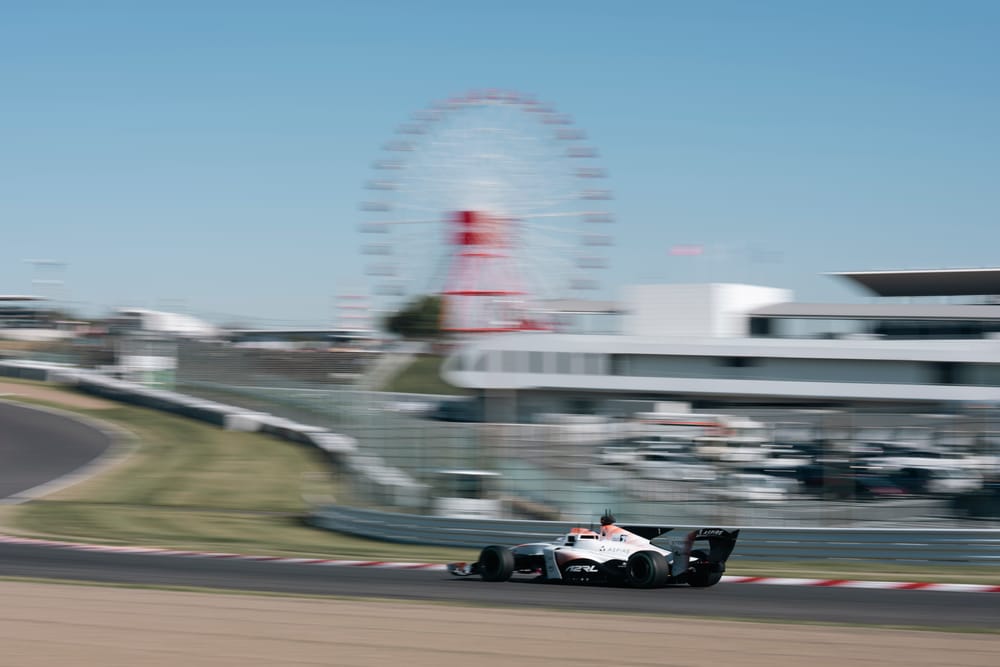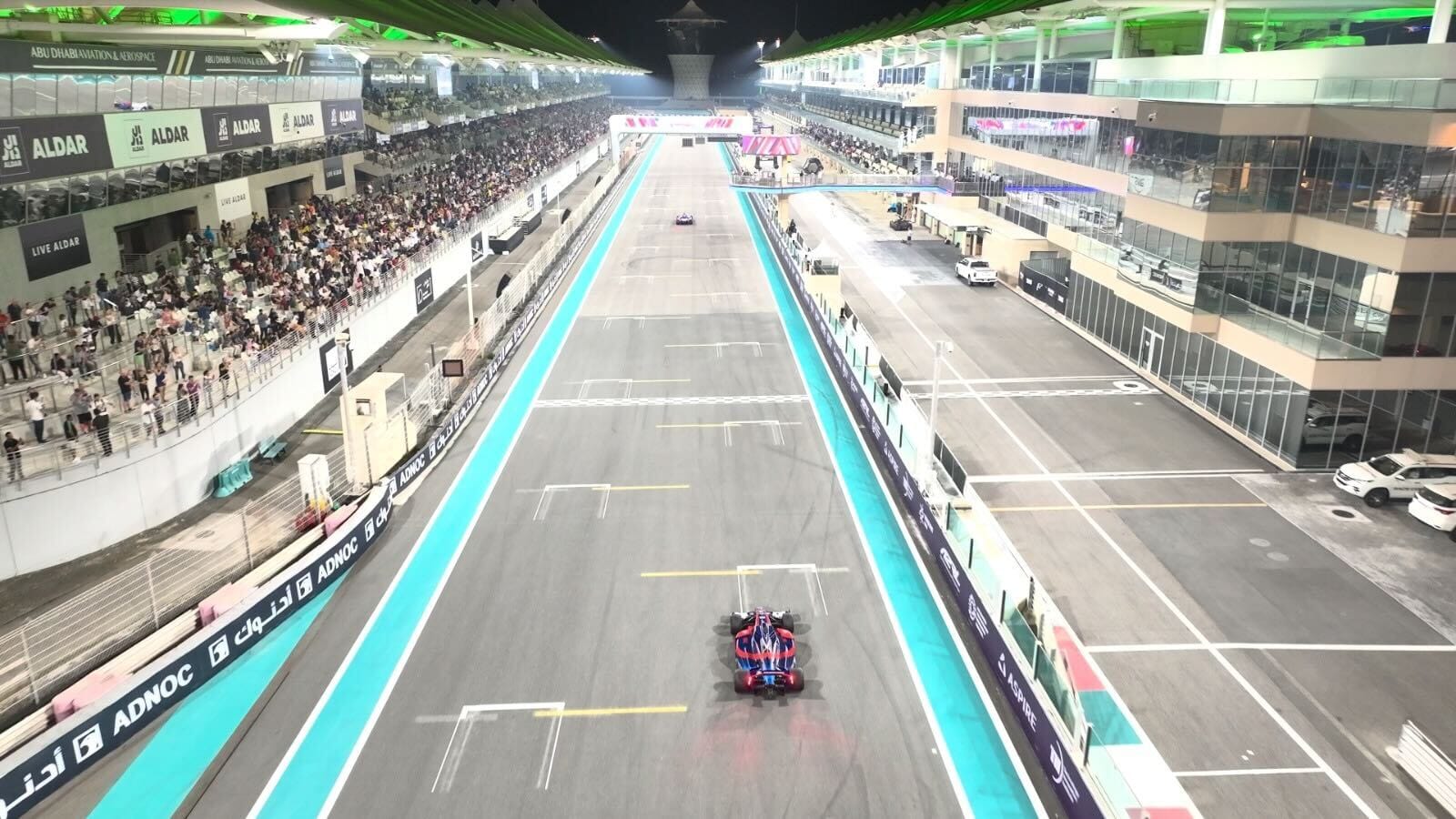The Abu Dhabi Autonomous Racing League (A2RL) visited Formula 1’s Japanese Grand Prix venue Suzuka last weekend, with another ambitious human vs AI demonstration that garnered plenty of interest on social media.
It was A2RL’s first major public event since the inaugural event took place at Abu Dhabi’s Yas Marina venue in April earlier this year in front of 10,000 spectators - an event that offered an impressive $2.25million prize fund for the eight competing teams.
The racing series - although many of the key figures describe it more as the progress of a technical challenge being showcased to the public - features autonomous Dallara-built Super Formula 2023 single-seaters.
The second-generation fully autonomous EAV24 car was used for the latest public showcase at Suzuka last weekend, which followed weeks of testing across the United Arab Emirates, Italy, and Japan - with six weeks of running at Suzuka itself.
Data gathered from A2RL development driver, ex-F1 driver turned sportscars ace Daniil Kvyat was used, while the European leg of that testing was led by former W Series racer Juju Noda.
Having human test drivers is critical for accelerating the development of autonomous cars. It allows for significant data collection and benchmarking that helps refine the racing algorithms for a specific - and highly technical - track such as Suzuka.
With its old-school bumps and plenty of elevation changes and tricky corners, Suzuka provided a much sterner test for the machines than Yas Marina did.

Two A2RL events were planned for the Suzuka weekend, which took place alongside Super Formula’s season finale. Suzuka was selected as a way for the series to expand its international following and further promote careers in science, technology, engineering and maths (STEM) and autonomous innovations.
The AI cars at Suzuka were operated by the TII Racing team, which will compete in A2RL’s 2025 Abu Dhabi event where there will once again be a $2.25m prize.
A race between two AI cars was planned for Saturday and another ‘human vs AI’ face-off on Sunday as there had been in Abu Dhabi. The human in question was Kvyat, who’d also participated in the inaugural Abu Dhabi event.
While billed as a race, the event is more of a showcase of the technology’s potential with Kvyat easily passing the car in Abu Dhabi. The idea is that will become increasingly difficult as the EAV24 car develops.
“Coming to each new circuit with any car is like starting from an almost blank piece of paper, and there are many variables to consider as we build up the necessary data and speed with the AI car,” team principal of TII Racing Giovanni Pau explained.
“It has been very beneficial to go through this process multiple times in recent months on tracks that vary in layout, topography and climate, to thoroughly test and refine the technology.
“The AI is still young, but developing fast.”
The Friday practice run of Kvyat vs the AI car all went according to plan, as did the AI race-off on Saturday.

But the Sunday human vs AI event was curtailed by the EAV24 car spinning off the track during the warm-up out of the Turn 11 hairpin. The crash was caused by excessive wheelspin out of the corner that led to the spin towards the barrier.
The cause of the crash was investigated by the engineering team who found the wheelspin was caused by a drop in rear tyre pressure. The exact cause of that drop is unknown but it’s likely either a valve malfunction on the tyre or it was picked up from debris on track.
That drop in tyre pressure combined with a track temperature that was cooler than accounted for, caused the spin.
The delay needed to recover the car meant the 15-minute demonstration couldn’t take place because of the time constraints of an otherwise packed schedule for Super Formula’s finale.

“While our race could not be completed on Sunday as planned, racing at Suzuka against TII Racing’s AI car during our dry run was incredible and the atmosphere on Sunday on the grid with all the Japanese fans was electric,” Kvyat said.
“From the beginning of my involvement with the project, AI’s progress has been impressive, learning and improving with each trial and I am proud to be playing a role in advancing AI and autonomous technology that will benefit many people in the near future.”
The lessons from the crash will be studied by the team who will hope to address them during testing before A2RL returns to Abu Dhabi for its tentpole 2025 event on April 26.
That Abu Dhabi event, taking place 12 months after the inaugural race, will be a good marker of exactly how far the ambitious series has come.





